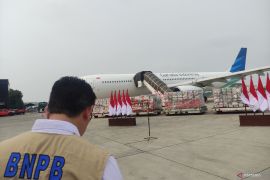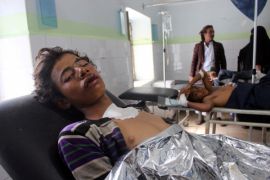Tribesmen have sided with the army in an effort to flush Islamist militants out of the south, where the government`s grip has been loosened during months of protests against President Ali Abdullah Saleh`s 33-year rule.
Islamists have exploited a local security vacuum to seize three towns in the southern province of Abyan, including its capital Zinjibar, in the past three months.
The government has said the militants are from the Yemeni wing of al Qaeda, but analysts say other local Islamist groups may be at work.
The first bomber approached a group of people in the town of Mudiyah and greeted them, shaking their hands one by one before setting off the explosives that killed him and three others.
Mudiyah is some 50 km (30 miles) northeast of the coastal town of Shaqra, which on Wednesday became the third town to fall into Islamist militant hands.
The second attack took place some 35 km (22 miles) away from Mudiyah in the al-Arqub area, where the bomber drove up to a tribal checkpoint and blew himself up, killing nine tribesmen and wounding a number of others.
President Saleh is recovering in neighbouring Saudi Arabia from a June assassination attempt. Opponents of Saleh, who was previously backed by the United States and Saudi Arabia as a partner in their counterterrorism strategy, accuse him of encouraging militants to show the dangers of Yemen without him.
Both Riyadh and Washington are anxious that upheaval in the impoverished Arabian Peninsula state will give al Qaeda`s Yemen-based wing more room to launch attacks on the region and beyond. (*)
Editor: Kunto Wibisono
Copyright © ANTARA 2011











